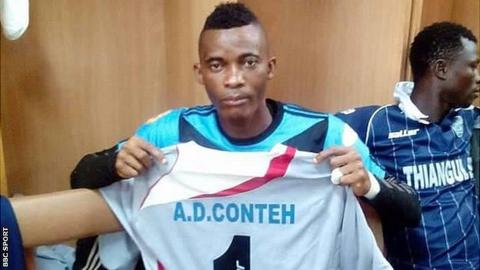Oliseh's exit and Nigeria's dearth of experienced coaches
Following Sunday Oliseh’s shock resignation from the Super Eagles top job, Nigeria’s football hierarchy promptly installed a trio of coaches overseen by Samson Siasia.
Siasia makes what is expected to be a temporary return to a job from which he was fired in 2011, after a 2-2 home draw that cost Nigeria a chance of qualifying for the 2012 Africa Cup of Nations.
Joining him are Emmanuel Amunike, who masterminded Nigeria’s fifth under-17 World Cup last year; Salisu Yusuf, who assisted Siasia in his first spell; and Alloy Agu who was part of Oliseh’s staff with Yusuf.
That’s where the good part ends. A day after the interim appointments were announced, Nigeria Football Federation (NFF) president Amaju Pinnick was quoted as saying the federation had had its fill of indigenous coaches and would be looking to hire a foreign coach for the senior national team.
His statement had the immediate and expected consequence of getting the Nigerian coaches association bristling.
A scathing statement, signed by its president Bitrus Bewarang, pulled no punches as it berated the NFF president, describing his words as “unfortunate.”
“We want to say as an Association that that statement from the NFF President was the most unfortunate in the present dispensation,” it read. “These antics are unacceptable by our Association, as it has become a normal trend in country to use the indigenous coaches to achieve a target, only to dump them for foreigners at the end of the day.
“We reject these antics to the totality and implore the NFF to always give the indigenous coaches equal respect as they do to foreigners.”
This local/foreign coach debate is not new. As a matter of fact, it is one of the longest-running debates in Nigerian football. Fans are usually split down the middle in their support of one side or the other.
Pinnick, in his defence, has made no secret which side of the fence he’s on, even before he became NFF president. Immediately after the World Cup, he was one of the first to advocate for Stephen Keshi’s replacement to be a European coach.
His appointment of Sunday Oliseh to replace Keshi was something of politically expedient, hybrid solution. The former midfielder was born local, but years of playing and living in Europe meant he had the high-level training, exposure and mentality of a European coach.
And therein lies the major issue that the FC-supporting half of Nigerians point to as the shortcomings of the coaches who spend most of their time in Nigeria.
For all the bluster of Bewarang and the other coaches in his association, it is a fact that a lack of regular training is holding them back.
It is no coincidence that of the hundreds of coaches in Nigeria, fewer than 10 have been trusted with the responsibility of leading the senior team. Adegboye Onigbinde, Amodu Shaibu, Augustine Eguavoen, Siasia, Keshi and Oliseh are the select few who have been given the opportunity in recent years.
The likes of Patrick Ekeji, James Peters and Monday Sinclair briefly held interim positions until a suitable foreign coach was appointed.
The reason is simple. Barring some of the ex-internationals from the class of ’94 who have earned their UEFA Pro Licenses, almost none of the older generation coaches have made the effort to improve on their knowledge of the game. A game that is evolving rapidly by the day!
In a changing landscape, even fewer still exploit digital devices and resources to stay in touch with their counterparts and trends worldwide.
Bewarang’s coaches association lacks structure, has organised no training for its members in years, and when the NFF organises CAF license training, it is usually only the junior coaches who show up.
There have also been widespread rumblings that local coaches tend to get involved in player-management issues, and pander to football agents and favourite players.
As it stands, the NFF have only got a small pool of qualified indigenous coaches to pick from, and that pool is all but used up. Amunike and Daniel Amokachi are perhaps the only ones left to select for the job of head coach.
The alternative would be to recycle one of the previous ones. Onigbinde, who led the team to the 2002 World Cup, appears to have burned his bridges with his outspoken laceration of the federation. Shaibu is currently technical director, and could pick up the slack if needed, but he is not very popular with the fans. Eguavoen is available, has the gravitas and can command player respect.
Pinnick, it appears, prefers to look elsewhere. And it is hard to blame him, really.
Oliseh has copped flak from coaches after his resignation. Pinnick too has been slammed for appointing him, with Onigbinde saying the Oliseh appointment, because of his inexperience, was an “insult” to other coaches.
But the brutal truth is that if Nigerian coaches want respect, they will have to earn it. By securing their badges, fighting for rather than against each other and maintaining the highest standards of professional behaviour. Until they do so, their roles will be no more than second fiddle








